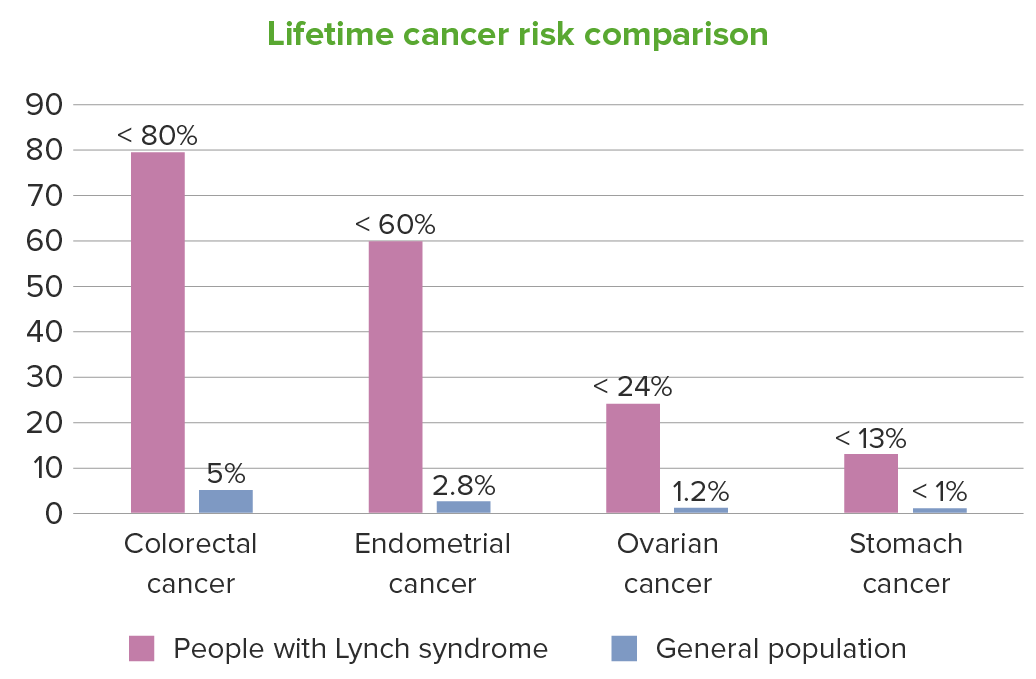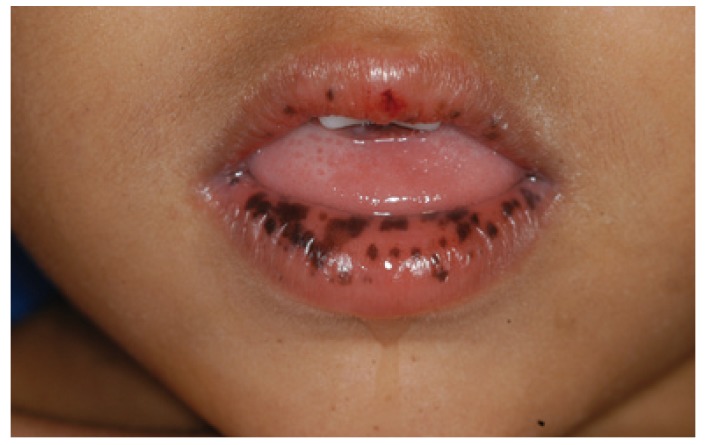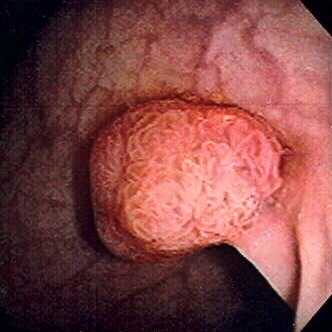Playlist
Show Playlist
Hide Playlist
Peutz-Jeghers Syndrome, Juvenile Polyposis and HNPCC
-
Slides Small and large bowel.pdf
-
Download Lecture Overview
00:01 Next, we're going to non-associated hereditary polyposis syndrome. 00:05 Peutz-Jegher we have talked about being a hamartoma, autosomal dominant. 00:09 It's a hamartoma however is associated with many cancers and associated with hyper-pigmentation of mouth, hands and feet? big time makes you know about Peutz-Jegher. 00:24 uvenile polyposis is characterized by hamartomatous polyps in the gastrointestinal tract. 00:31 And any time that you have a polyp or diverticulum, you are always worried about distant folding upon each other resulting in an intussusception type of presentation. 00:40 So intussusception should mean a couple things to you. 00:43 It means that there is something there that's allowing for the folds of the intestine to come into each other, right? So maybe it is Meckel´s diverticulum, maybe it is some type of polyp. 00:56 There is something going on underlying often times with intussusception. 01:01 Keep that in mind. What it feels like when you touched it? A sausage, a sausage, a sausage. 01:05 Now, make sure that we're clear about what we are talking about. 01:12 I mentioned this a few times, up until now all your issues have been hereditary polyposis. 01:19 Now we're getting into trans hereditary non-polyposis. A type of cancer this would then develop. 01:25 Colorectal would be right sided. And do not forget also associated with endometrial cancer in a female. 01:32 Autosomal dominant disorder, a defect in repaired DNA base mismatch, you call this microsatellite instability, and up to 3% maybe associated with colorectal cancer, right side, right side, right side more so. 01:47 Strong association do not forget ovarian in a female, so gyne cancers and by uterine we mean endometrial. 01:56 Suspected graded in three family members have colorectal cancers and that is, rule of thumb, in terms of proper genetic counseling in generations that you are paying attention to. 02:07 Three family members. Screening of family member age of 35 or 5 years earlier than the youngest age of diagnosis. 02:16 Female screening for endometrial cancers is important if you're suspecting a patient with HNPCC.
About the Lecture
The lecture Peutz-Jeghers Syndrome, Juvenile Polyposis and HNPCC by Carlo Raj, MD is from the course Small and Large Intestine Diseases: Basic Principles with Carlo Raj. It contains the following chapters:
- Peutz-Jegher's Syndrome
- Juvenile Polyposis
- HNPCC
Included Quiz Questions
A 12-year-old patient presents with multiple hyperplastic polyps. What finding is MOST likely to be seen on ultrasound scan if the patient develops a complication of the bowel?
- A targetoid or a sausage-shaped lesion
- Snowstorm appearance
- Cystic space with rimming of the lesion
- Rat tail appearance
- Bird's beak sign
A patient presents with hyperpigmentation of the mouth, hands, and feet, and a colonoscopy reveals polyps. Which tumor marker must be assessed in such patients?
- CA 125
- CA 19-9
- Beta HCG
- Prostate-specific antigen
- Alpha-fetoprotein
A Peutz-Jeghers polyp is an example of which type of polyp?
- Hamartomatous polyp
- Inflammatory polyp
- Hyperplastic polyp
- Serrated adenomatous polyp
- Traditional serrated adenomatous polyp
Which non-gastrointestinal cancer is associated with HNPCC?
- Endometrial cancer
- Breast cancer
- Thyroid cancer
- Prostate cancer
- Lung cancer
How many polyps are commonly seen in a Lynch syndrome patient during colonoscopy?
- 0
- More than 100
- 1–5 sessile polyps
- 1–5 pedunculated polyps
- Many pseudopolyps
What is the pathogenesis of hereditary non-polyposis colon cancer (HNPCC)?
- Microsatellite instability
- Gain of function of FAP gene
- Loss of function of FAP gene
- "Two-hits hypothesis" (where genes undergo mutation)
- Trisomy of chromosomes
Which of the following cancers is NOT associated with HNPCC?
- Breast cancer
- Gastric cancer
- Endometrial cancer
- Ovarian cancer
- Right-sided colorectal cancer
At what age must screening for endometrial cancer be initiated when a person is diagnosed with HNPCC?
- 25 years
- 35 years
- 65 years
- 45 years
- 55 years
Which type of Mendelian pattern does Peutz-Jeghers syndrome follow?
- Autosomal dominant
- Autosomal recessive
- X-linked dominant
- X-linked recessive
- Y-linked dominant
Customer reviews
5,0 of 5 stars
| 5 Stars |
|
5 |
| 4 Stars |
|
0 |
| 3 Stars |
|
0 |
| 2 Stars |
|
0 |
| 1 Star |
|
0 |







